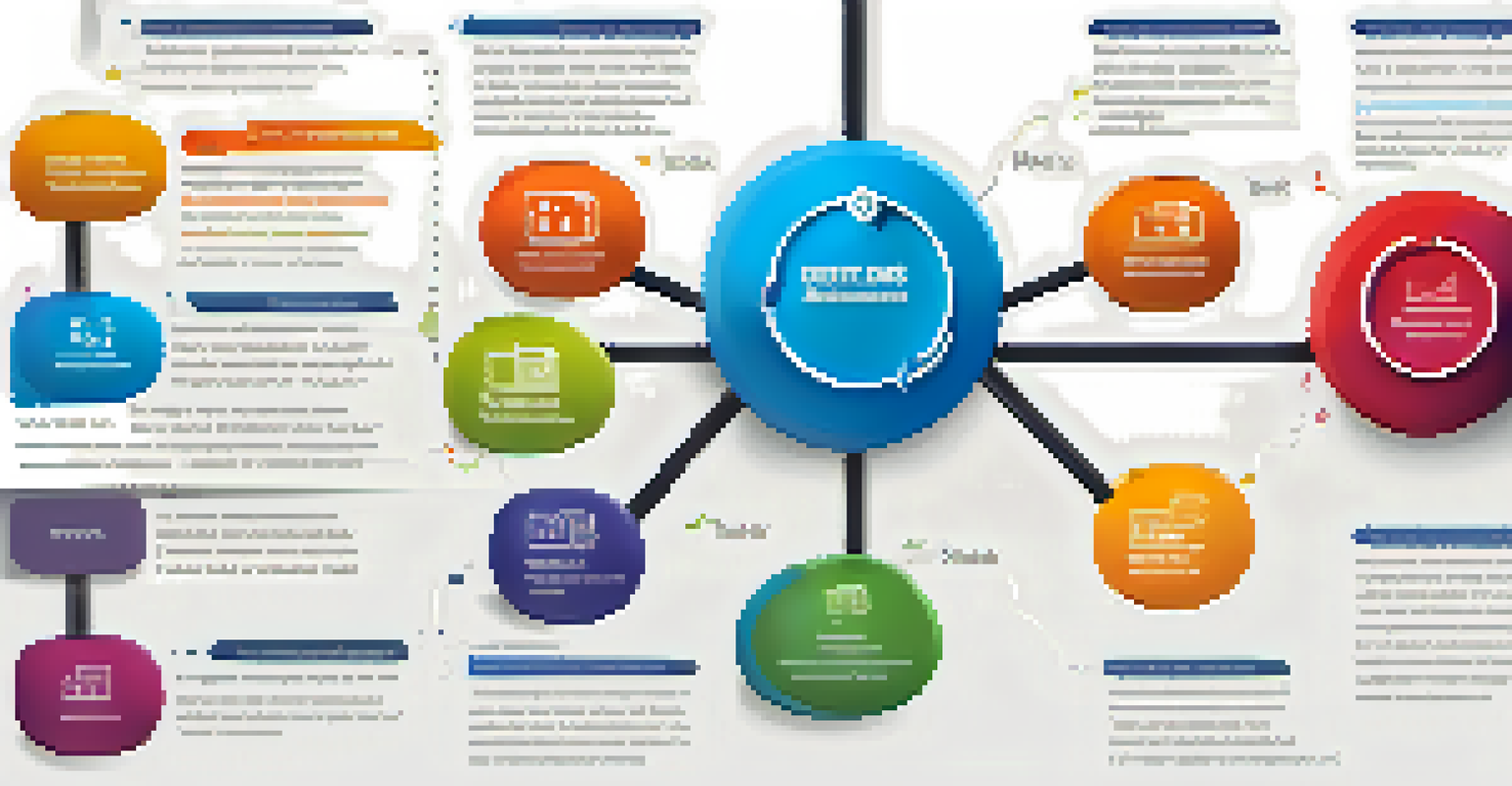The Role of Content Management Systems in Blogging

Understanding Content Management Systems (CMS) Basics
A Content Management System, or CMS, is software that helps you create, manage, and modify content on a website without needing specialized technical knowledge. It's like having a digital toolbox that organizes your blogging materials, making it easier to craft and update posts. Popular CMS platforms include WordPress, Joomla, and Drupal, each offering unique features tailored to different blogging needs.
Content is king, but distribution is queen and she wears the pants.
By using a CMS, bloggers can focus more on writing and less on the technical details of website management. This user-friendly approach allows anyone, regardless of their tech skills, to publish content effectively. For instance, with just a few clicks, you can add images, videos, or links, enriching your posts without any coding required.
Moreover, a CMS streamlines the entire blogging process, allowing for quick adjustments or updates. Whether you're editing an existing post or scheduling future content, a CMS simplifies tasks, saving you time and letting you concentrate on what truly matters: your message.
Benefits of Using a CMS for Bloggers
One of the primary benefits of using a CMS is the ease of use it provides. Most systems come with intuitive interfaces that allow you to create and publish posts seamlessly. This means you can spend more energy on crafting engaging content rather than wrestling with complicated coding or layout issues.

Additionally, a CMS often includes features such as templates and plugins, which can enhance your blog's functionality and appearance. For example, you can easily integrate social media sharing buttons to help your content reach a wider audience. This accessibility can lead to increased engagement and visitor retention.
CMS Simplifies Blogging Process
A Content Management System allows bloggers to create and manage content easily, focusing more on writing than technical details.
Lastly, a CMS typically supports SEO tools that help optimize your posts for search engines. Built-in features ensure your content is structured properly, making it easier for potential readers to discover your blog through organic search results.
How a CMS Simplifies Content Organization
Blogging can quickly become overwhelming, especially if you manage multiple posts and categories. A CMS provides a structured way to organize your content, allowing you to categorize posts and use tags effectively. This makes it easier for both you and your readers to navigate through your blog.
The best content doesn’t always win. It’s the best-promoted content that wins.
For instance, if you run a cooking blog, you can categorize posts by cuisine type or meal category, making it simple for visitors to find what they're looking for. This organized approach not only enhances user experience but also encourages longer site visits and repeat readership.
Moreover, a CMS often includes content calendars and scheduling features. These tools allow you to plan and publish your posts ahead of time, ensuring a consistent flow of content without the last-minute scramble of rushing to hit deadlines.
Ensuring Security and Updates with a CMS
One critical aspect of blogging is maintaining the security of your site. A reliable CMS includes security features to protect your content and user data from threats. Regular updates ensure that vulnerabilities are patched and that your blog remains secure against potential attacks.
For example, platforms like WordPress often release updates that enhance security and introduce new features. By keeping your CMS updated, you reduce the risk of falling victim to hacking attempts or data breaches. This peace of mind allows you to focus more on creating rather than worrying about security.
Enhanced SEO with CMS Tools
Most CMS platforms offer built-in SEO tools that help optimize content for better visibility in search engines.
In addition, many CMS platforms allow you to back up your content easily. Regular backups can save you from losing vital data due to technical issues, ensuring your hard work is protected.
Integrating Multimedia in Your Blog with a CMS
In today's digital landscape, engaging content often includes multimedia elements like images, videos, and infographics. A well-structured CMS simplifies the integration of these elements, enhancing your blog's overall appeal. With just a few clicks, you can upload and embed rich media that captivates your audience.
For instance, if you're writing a travel blog, adding stunning photos or video clips can transport your readers to the destinations you're discussing. This not only makes your content more engaging but also helps illustrate your points more effectively.
Furthermore, many CMS platforms come with built-in optimization features for multimedia. This means that images can automatically be resized or compressed for faster loading times, ensuring a smooth user experience while maintaining quality.
SEO Advantages of Using a CMS for Your Blog
Search Engine Optimization (SEO) is crucial for increasing your blog's visibility. A CMS can be a powerful ally in your SEO efforts, as most platforms offer built-in tools and plugins designed to enhance your content's searchability. This means you can easily optimize your posts for keywords, meta tags, and descriptions.
For example, platforms like WordPress have plugins such as Yoast SEO, which guide you in optimizing each post as you write. This helps ensure your content meets SEO best practices, increasing the likelihood of your blog appearing in search engine results.
Organized Content Management
A CMS provides structured ways to categorize and schedule posts, making it easier for both bloggers and readers to navigate.
Moreover, a CMS allows for easy management of your site's structure, such as creating user-friendly URLs and sitemaps. These factors contribute to better indexing by search engines, ultimately helping your blog gain more organic traffic.
The Future of Blogging and CMS Innovations
As technology evolves, so does the role of CMS in blogging. New innovations, such as artificial intelligence and machine learning, are being integrated into CMS platforms to offer smarter content recommendations and personalized user experiences. This means that your blog can become more interactive and relevant to your audience's preferences.
For instance, some CMS solutions are now incorporating AI-driven analytics that help you understand which topics resonate most with your readers. This data can guide your content strategy, ensuring you produce posts that your audience craves.

Additionally, the rise of headless CMS offers flexibility by separating the content management from the presentation layer. This means you can deliver content across various platforms and devices, enhancing your reach and engagement in an increasingly digital world.